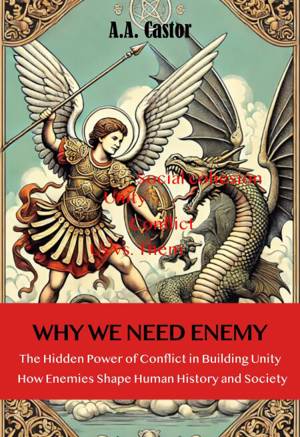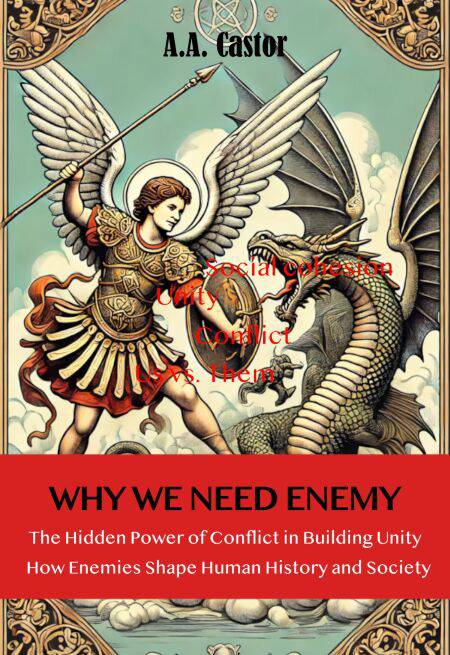
- Retrait gratuit dans votre magasin Club
- 7.000.000 titres dans notre catalogue
- Payer en toute sécurité
- Toujours un magasin près de chez vous
- Retrait gratuit dans votre magasin Club
- 7.000.0000 titres dans notre catalogue
- Payer en toute sécurité
- Toujours un magasin près de chez vous
Why We Need an Enemy: The Hidden Power of Conflict in Building Unity EBOOK
A.A. CastorDescription
"Why We Need an Enemy: The Hidden Power of Conflict in Building Unity" explores the paradoxical role of enemies throughout human history. From early tribal conflicts to the intricate dynamics of modern politics, this book delves into how the identification of a common foe has consistently united people, driven social cohesion, and shaped our collective identity. Whether it's nations rallying against a foreign threat, communities uniting against perceived social dangers, or political movements built around a shared adversary, the need for an enemy has been an enduring force that has both divided and brought people together.
Through compelling historical examples, psychological insights, and analysis of group dynamics, "Why We Need an Enemy" reveals why conflict has been a driving force in both human progress and societal division. Discover how political campaigns, social movements, and even friendship groups have used the concept of "us vs. them" to foster loyalty and unity. The book also questions whether we can find new ways to unite that don't rely on having an adversary—ways that encourage inclusion, shared values, and cooperation instead of division. Ultimately, this thought-provoking exploration challenges us to rethink the role of conflict in our lives and consider how we can build a more harmonious and inclusive society.
Spécifications
Parties prenantes
- Auteur(s) :
- Editeur:
Contenu
- Langue:
- Anglais
Caractéristiques
- EAN:
- 9798227849625
- Date de parution :
- 04-10-24
- Format:
- Ebook
- Protection digitale:
- /
- Format numérique:
- ePub

Les avis
Nous publions uniquement les avis qui respectent les conditions requises. Consultez nos conditions pour les avis.






